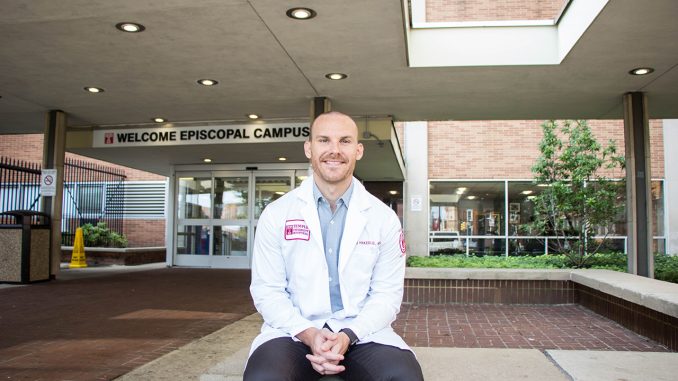
Months prior to June 26, there had been rumblings inside Hahnemann University Hospital, suggesting it might close.
But medical residents like Matthew Parker had been told by program administrators that the hospital had weathered issues in the past and no one should be concerned, he said.
When the hospital announced its closure less than a week before the start of the academic year, more than 550 residents were shocked as they were suddenly turned into “orphans” who needed to find another program in just two months, Parker said.
That same day, June 26, was also Parker’s birthday.
Parker, a fourth-year psychiatry resident, became one of 84 students taken in by Temple as part of a $55-million bid from six local health systems that aimed to accommodate nearly 400 of the orphaned residents after Hahnemann’s sudden closure.
“I think it’s better than anyone thought we could get in the situation we were presented,” Parker said of Temple’s acceptance of former Hahnemann residents. “I think the leadership has been fantastic.”
Hahnemann announced their closure just two days into Ryan Sardene’s first-year orientation, he said, and it put him and his peers into a state of shock.
“It was shocking because it was a 171-year-old institution,” said Sardene, also a psychiatry resident accepted by Temple. “It was older than the Civil War.”
Susan Coull, the associate dean of graduate medical education at the Lewis Katz School of Medicine, said that the closure effectively condensed what is normally a six-month matching process into a month and a half.
“This was not a normal situation, clearly,” Coull said. “It was extremely hectic for many reasons.”
Hahnemann cited severe financial difficulties in its reason for closing, according to a release from the hospital.
The day the closure was announced, Coull and her colleagues scrambled to assess how many residents Temple could add while simultaneously interviewing those residents for the competitive slots.
“Each individual residency program needs to evaluate whether they can take additional learners by specialty,” Coull said. “We all went through that analysis for how many residents we could take without compromising the current class.”
But the residents themselves were hit the hardest by the closure, Coull said.
“The position they were put in as trainees was incredibly stressful,” she added. “It’s their lives and their careers on the line.”
The decision to stay in Philadelphia was easier for Parker because he was in the final year of his residency. Others had to consider whether to essentially start over in a new city, he said.
The residents who transferred were appreciative of Temple for making them feel welcome, Coull said.
Most departments hosted welcome receptions for their new trainees, she added.
“They really made sure to make us feel welcome from day one,” Parker said.
Current residents at Temple scheduled happy hours and time for the new residents to meet with their departments, he added.
“You’re on a rollercoaster ride, you’ve got a lot of adrenaline, and you come to a stop. Our stop was at Temple,” Sardene said. “You’re very happy to get off the ride when it’s over.”


Be the first to comment